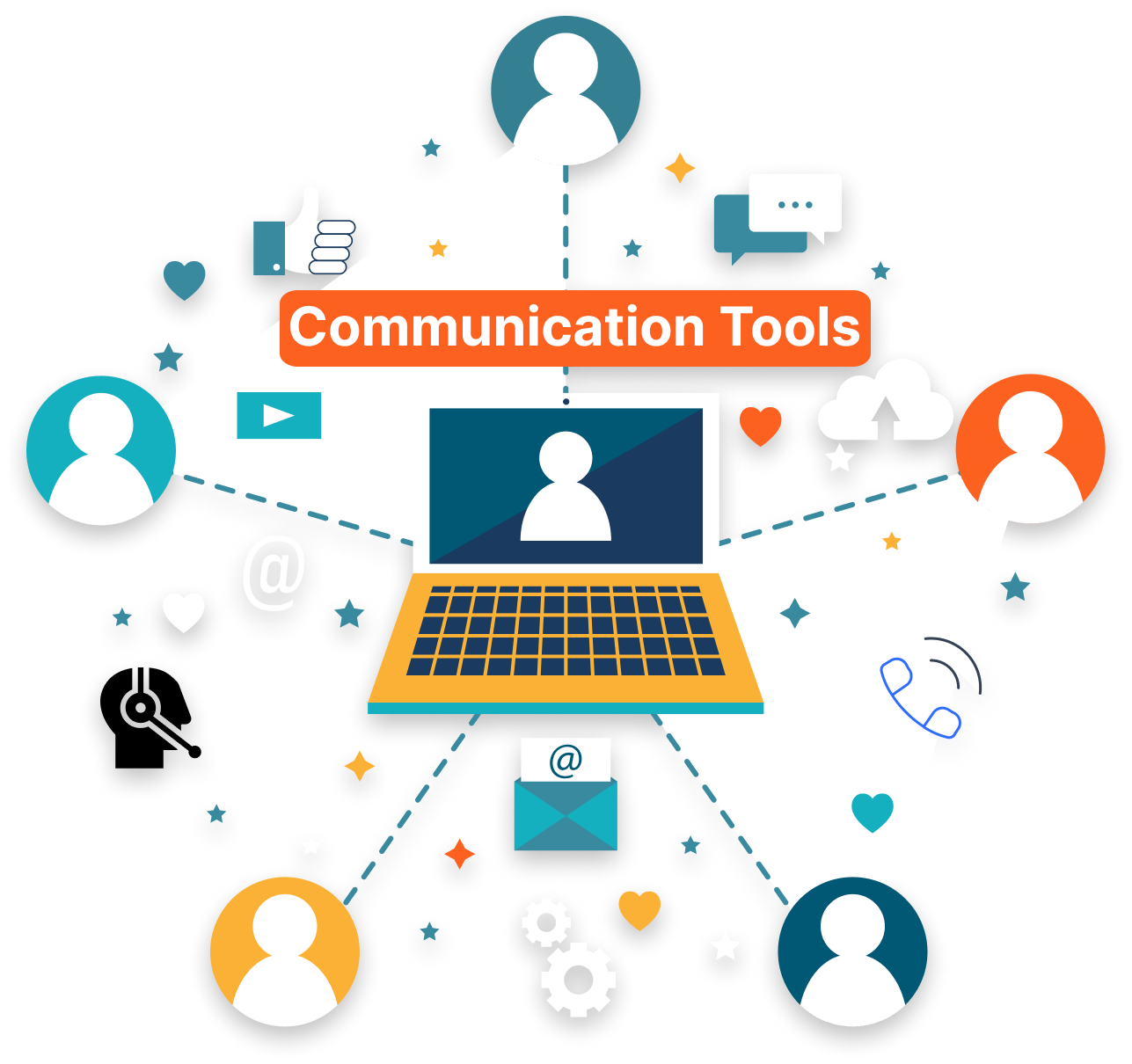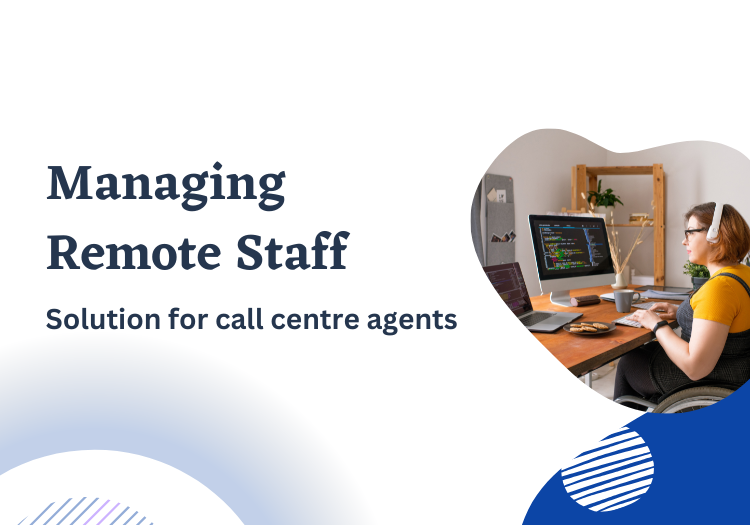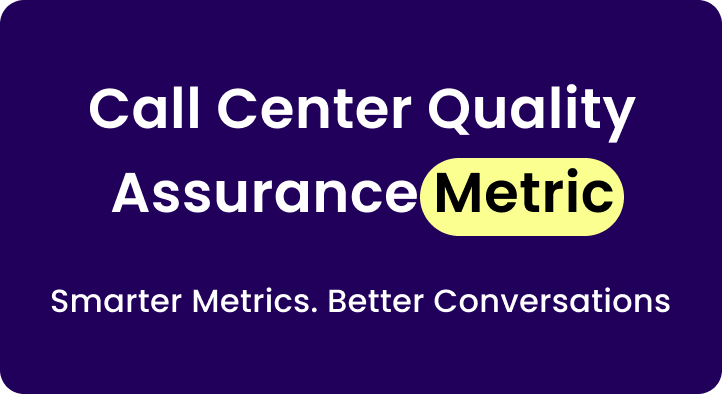Managing remote call center agents requires different strategies than in-office teams. Without physical presence, you need stronger systems for communication, performance monitoring, and team engagement to maintain productivity and quality.
This guide covers 10 best practices for managing distributed call center teams, from setting clear expectations and using the right technology to maintaining team culture and preventing agent burnout.
Whether you’re transitioning to remote work or optimizing an existing distributed team, these strategies will help you keep agents engaged, productive, and delivering excellent customer service.
Table of Contents
A. 10 Ways to manage remote call center agents

1. Communicate expectations to agents
Agents who work remotely faces many challenges as compared to agents who work on-site.
When agents work remotely, they do not have the luxury of many resources such as in-person feedback.
Make sure to clearly communicate and set remote work expectations.
Also, measure those expectations against important KPIs such as Occupancy Rate and Average Handle Time that makes sure you know how productive are agents in their work.
2. Hold video conferencing meetings
When call center agents are working remotely and you have no physical contact with them, it is best to use video conferencing tools that help you connect to agents.
Also, it is the best way to get informed about the activities they are performing directly with the agents.
Doing team meetings using video calls helps agents to meet each other and make them feel that they are not working alone.
Video meetings ensure that other team members listen to the information you are sharing.
Video calls also makes agents feel that they are not working remotely.

3. Motivate agents with rewards and incentives
You cannot keep an eye on agents 24/7 when they are working remotely as compared to when they are working on-site.
So, if you want that agents works efficiently even when no one is looking, then the best way is to reward agents for the work they have done.
You can start by giving scores to their everyday tasks and based on their scores, you can reward them prizes.
This will feel like a game and agents will be motivated to do their best.
These rewards and incentives will give agents to push a little harder and aim higher than what is expected of them.
Also, it creates a healthy competition between the agents.
All this will make the task of managing remote call center agents a little easier.

4. Ask for customer feedback
Asking for customer feedback is essential for call center quality assurance, especially when managing remote call center agents.
By providing customers with polls or surveys, immediately after a call or a few days later, it helps you gain a different perspective of how agents are performing.
This is important because what you think is happening and what is actually happening can be totally different and you can gain this perspective only from customers.
You can understand whether they are taking too much time or not to provide solutions, the way they talk is in line with the benchmarks set or not and more.
Collect and analyze this feedback and use it to improve remote call center agents‘ performance.

5. Use tools to keep a check on agents
When you are working remotely, it can be hard to look into individual performance and keep a track of activities they are performing day in and day out. Adopting call center practices is crucial in such situations.
This calls for you to invest in tools and mechanisms that will help you look into the activities performed by agents and the interactions between agents and customers.
Having the right tools will help keep a check on agents and brings transparency to your daily processes.
Also, agents will know what they are doing and how other team members are performing.
Select the right call analysis software that helps you communicate with agents, analyze the agents interactions with customers and give opportunities for personalized coaching.
You can use conversation intelligence softwares like Enthu.AI that helps to monitors and analyzes customer interactions and provides you feedback for each call.
6. Provide autonomy
To manage remote call center agents, effective call center management involves empowering them to make decisions
But before doing that, you need to make sure that agents know what is expected of them, they are well-trained on tools and resources they are going to use, and have a framework for accomplishing their goals.
Pro Tip💡
Use Speech analytics software to analyze, improve, and optimize customer interactions.
After this, you can give them autonomy to do work.
You can let them decisions on their own as long as they are meeting deadlines, you are communicating with them on regular basis, you are giving them proper feedback and more.
If you’re willing to go the extra mile, you can extend your employees’ autonomy to their control over where they work.
By allowing your team to work from anywhere, you’re truly setting them free while opening your business up to the advantages of hiring internationally.

7. Secure VPN Access
Set up a virtual private network (VPN) to provide remote agents with secure access to the company’s systems and databases.
A VPN establishes an encrypted connection between the agent’s device and the company’s network, ensuring the confidentiality and integrity of customer data.
A virtual private network (VPN) is a crucial tool for remote call center agents as it creates a secure and private connection over the internet.
When agents connect to a VPN, their internet traffic is encrypted and routed through a secure tunnel to the company’s network.
This encryption ensures that any data transmitted between the agent’s device and the company’s systems remains confidential and protected from unauthorized access.
Pro Tip💡
Use call center quality monitoring software to enhance performance and compliance.
8. Collaboration and Communication Tools
Use cool collaboration and communication tools to keep the chat flowing between remote agents and their team leads.
It’s all about giving timely support to those working from home! These tools help bridge the gap between team members and boost overall efficiency.
Agents can hop on these platforms to ask questions, clear up any confusion, or share important news.
Team leaders can jump right in to offer help and guidance when needed.
Plus, instant messaging makes it super easy to share files, documents, and even screenshots—making the info exchange a breeze!

9. Virtual Training and Support
Develop virtual training programs to onboard and continuously train remote call center agents.
Think webinars, online courses, and cool video tutorials that give agents the lowdown on products, customer service skills, and how to handle tricky situations.
Use webinars for diving deep into specific topics, showing off demos, and letting agents fire off their questions in real-time.
Virtual workshops can involve group activities, role-playing exercises, and case studies to enhance learning and application of knowledge.
10. Provide Technical Support
Ensure that remote call center agents have access to technical support when needed.
Establish a dedicated support team or help desk that can assist with technical issues, software troubleshooting, or connectivity problems.
Promptly address any technical challenges to minimize downtime and maximize agent productivity.
Implement proactive monitoring systems to identify and address potential technical issues before they impact remote call center agents.
Monitor network connectivity, software performance, and system stability. Conduct regular system checks, and promptly address any detected anomalies or areas of concern.
B. Understand the unique challenges of remote management
Remote workers face increased distractions compared to in-office employees, which can lead to longer completion times for after-call work (ACW) tasks.
Communication challenges are prevalent among remote workers, requiring more time for clarifying instructions and seeking feedback, ultimately impacting efficiency.
Technical difficulties, such as internet connectivity issues or software problems, can hinder the performance of remote agents and add to the management challenges.
Effectively managing a remote call center requires additional methods to measure performance, including collecting data to identify productivity gaps and training needs.
The shift to remote work in contact centers necessitates the use of digital tools, such as agent analytics and collaboration software, to enhance management capabilities and maintain productivity.
FAQs
1. Which Management Techniques for Remote Contact Center Agents Work the Best?
Implementing these best management practices will enhance remote agents’ engagement and elevate your team’s overall customer service proficiency. Both of these elements are vital for the sustained success of your business.
2. How do you manage call center agent?
Effective call center agent quality management involves clear communication, regular feedback, training, and support. Set clear goals, monitor performance, provide coaching, and prioritize employee well-being for optimal results.
3. What are the benefits of remote contact centers?
Thanks to all the cool tech advancements we’ve seen lately, managing remote contact centers has become way easier than it used to be. Nowadays, CX leaders see them as essential for snagging top talent and keeping agent turnover low — which, by the way, is around 31%, based on research from Metrigy.



 On this page
On this page

